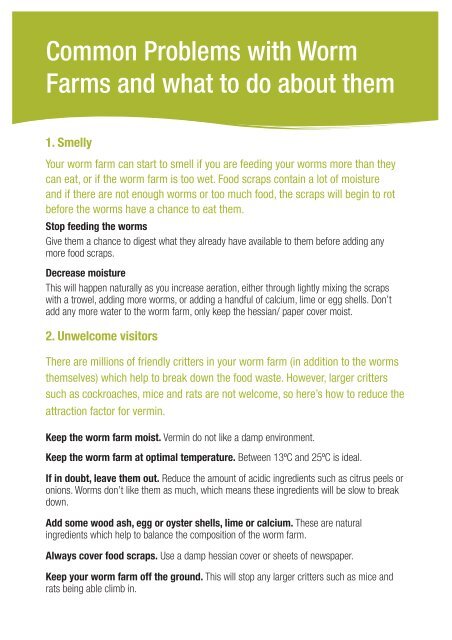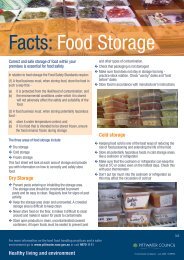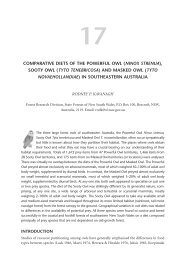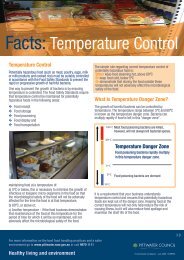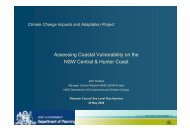Guide to Worm Farming - Pittwater Council
Guide to Worm Farming - Pittwater Council
Guide to Worm Farming - Pittwater Council
You also want an ePaper? Increase the reach of your titles
YUMPU automatically turns print PDFs into web optimized ePapers that Google loves.
Common Problems with <strong>Worm</strong><br />
Farms and what <strong>to</strong> do about them<br />
1. Smelly<br />
Your worm farm can start <strong>to</strong> smell if you are feeding your worms more than they<br />
can eat, or if the worm farm is <strong>to</strong>o wet. Food scraps contain a lot of moisture<br />
and if there are not enough worms or <strong>to</strong>o much food, the scraps will begin <strong>to</strong> rot<br />
before the worms have a chance <strong>to</strong> eat them.<br />
S<strong>to</strong>p feeding the worms<br />
Give them a chance <strong>to</strong> digest what they already have available <strong>to</strong> them before adding any<br />
more food scraps.<br />
Decrease moisture<br />
This will happen naturally as you increase aeration, either through lightly mixing the scraps<br />
with a trowel, adding more worms, or adding a handful of calcium, lime or egg shells. Don’t<br />
add any more water <strong>to</strong> the worm farm, only keep the hessian/ paper cover moist.<br />
2. Unwelcome visi<strong>to</strong>rs<br />
There are millions of friendly critters in your worm farm (in addition <strong>to</strong> the worms<br />
themselves) which help <strong>to</strong> break down the food waste. However, larger critters<br />
such as cockroaches, mice and rats are not welcome, so here’s how <strong>to</strong> reduce the<br />
attraction fac<strong>to</strong>r for vermin.<br />
Keep the worm farm moist. Vermin do not like a damp environment.<br />
Keep the worm farm at optimal temperature. Between 13ºC and 25ºC is ideal.<br />
If in doubt, leave them out. Reduce the amount of acidic ingredients such as citrus peels or<br />
onions. <strong>Worm</strong>s don’t like them as much, which means these ingredients will be slow <strong>to</strong> break<br />
down.<br />
Add some wood ash, egg or oyster shells, lime or calcium. These are natural<br />
ingredients which help <strong>to</strong> balance the composition of the worm farm.<br />
Always cover food scraps. Use a damp hessian cover or sheets of newspaper.<br />
Keep your worm farm off the ground. This will s<strong>to</strong>p any larger critters such as mice and<br />
rats being able climb in.


